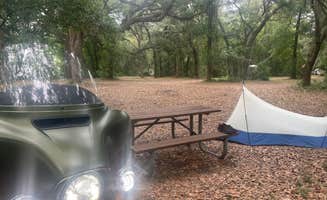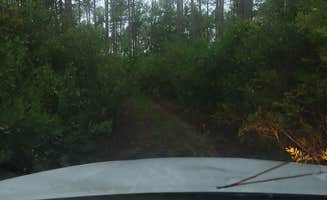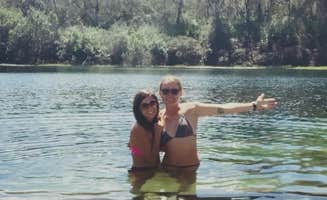Best Dispersed Camping near Webster, FL
The Webster, Florida area features primarily dispersed camping options within water management areas and national forest lands. Upper Hillsborough Water Management Area provides primitive sites with fire rings and picnic tables suitable for both tent campers and smaller RVs. Within an hour's drive, the Ocala National Forest offers multiple dispersed camping opportunities including Trout Lake Primitive Sites, Blue Sink, and Freak Creek Dispersed Camping. These locations typically provide basic accommodations with minimal amenities, focusing on natural settings near lakes, rivers, and wooded areas rather than developed facilities.
Road conditions vary significantly across these camping areas, with many requiring high-clearance vehicles or four-wheel drive for access. According to one camper at Freak Creek, "The main road in has huge deep ruts, the other road has a water crossing that was over my bumper on my lifted Mojave." Similar access challenges exist at Trout Lake, where visitors note "very narrow tree clearance" with "4WD recommended." Cell service is generally poor throughout the region, particularly in more remote locations. Safety concerns have been reported at some sites, particularly in parts of Ocala National Forest, where campers should research current conditions before visiting.
Water access represents a significant draw for campers in the Webster area. St. Johns River dispersed camping spots offer riverside locations where "the trees open up so you get a great view of the stars." Most sites maintain a primitive character with limited facilities, though Upper Hillsborough provides some amenities like pull-through sites and fire rings. Wildlife sightings, including panthers, have been reported in more remote areas. Campers frequently mention the secluded nature of these sites as a primary benefit, with one noting that Freak Creek is "super secluded and quiet." Kayaking opportunities exist at several locations, particularly those adjacent to creeks and lakes, though visitors should be prepared for primitive conditions and potentially challenging access.




